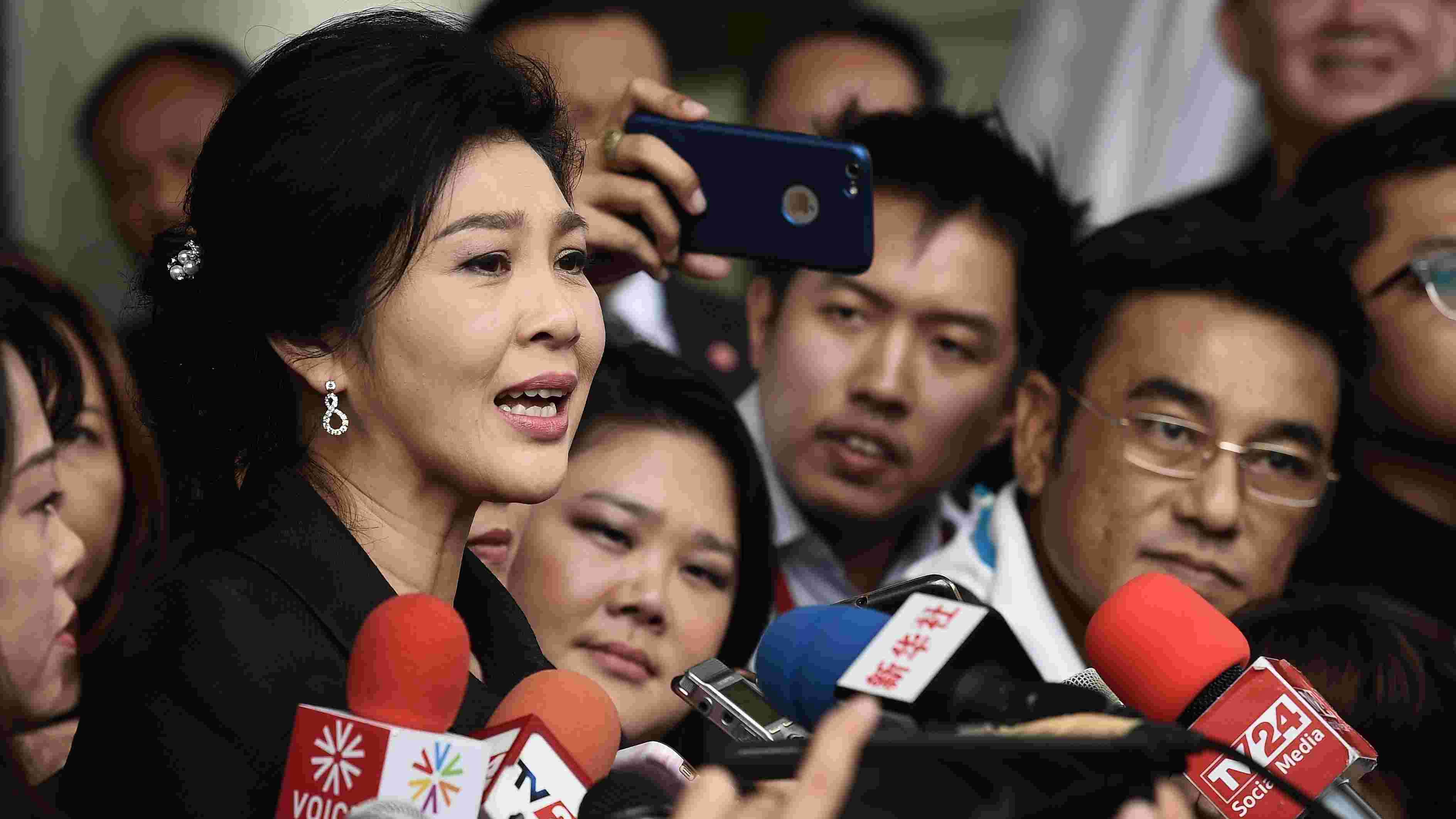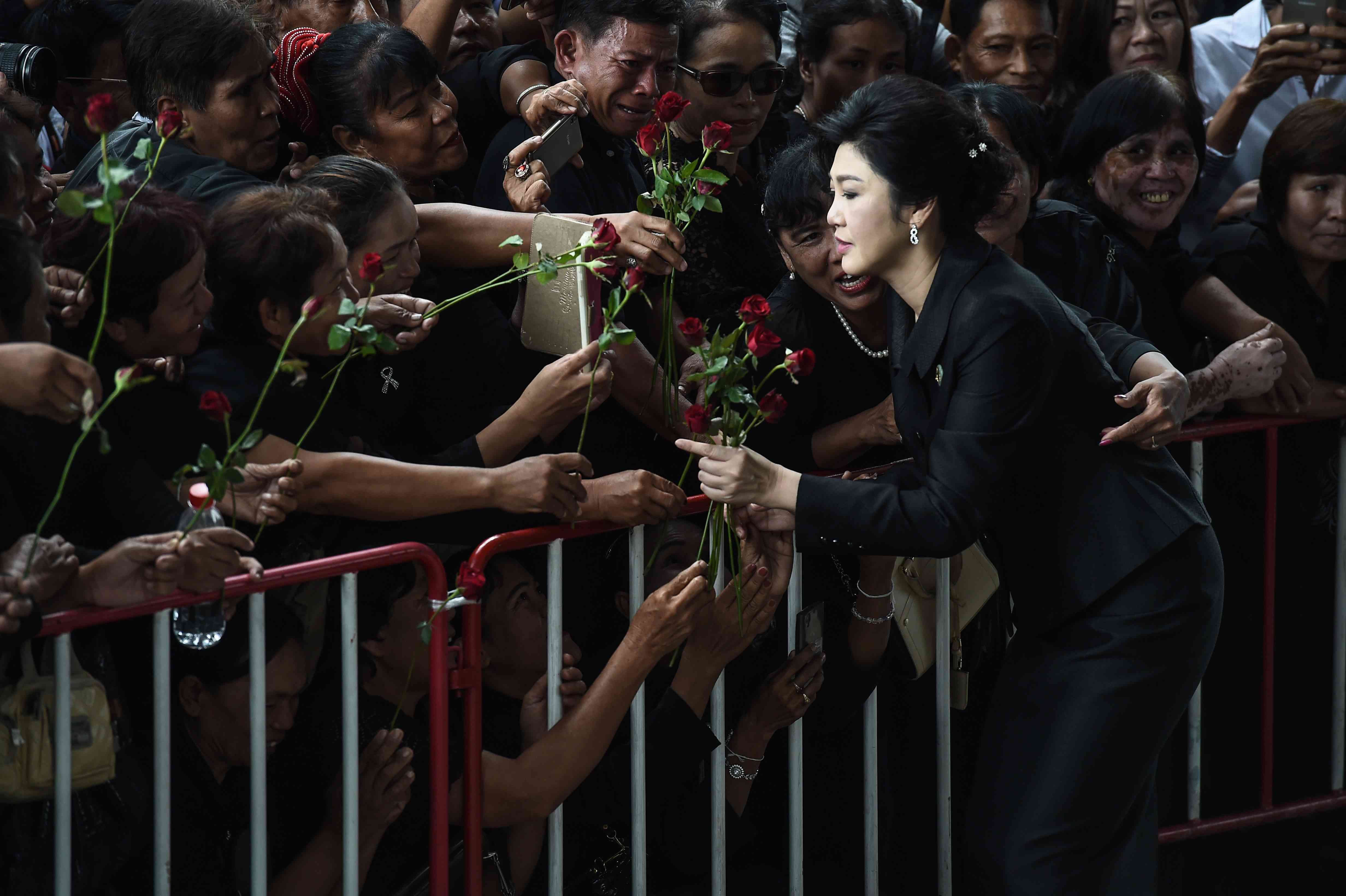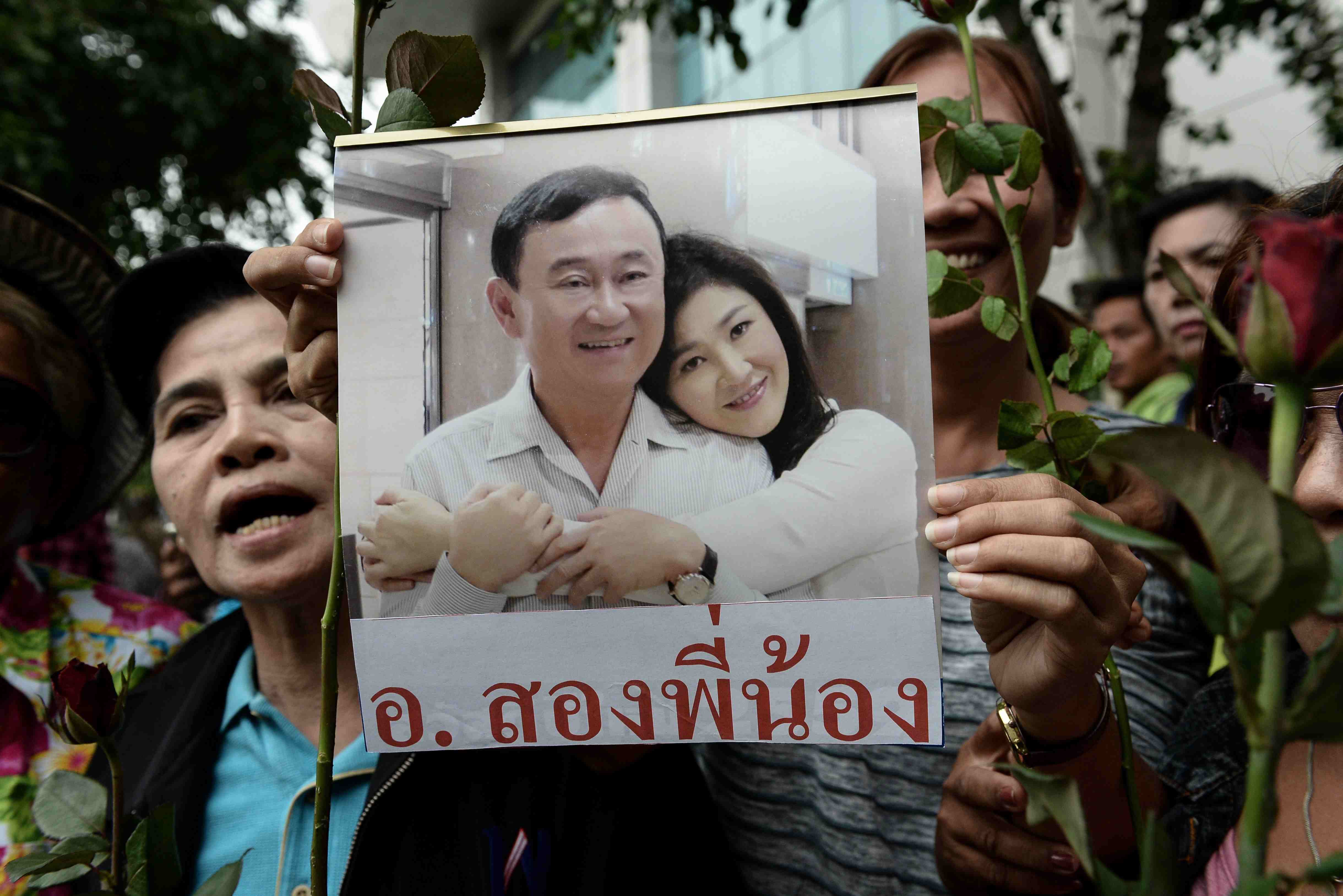
Politics
18:17, 25-Jul-2017
Former Thai PM questions junta move to freeze bank accounts

Former Thai prime minister Yingluck Shinawatra on Tuesday questioned a move by the country's government to freeze her assets.
The justice ministry took the action in the wake of a one billion US dollar fine imposed in relation to a rice subsidy scheme overseen by Yingluck's administration.
Thai authorities have frozen seven bank accounts belonging to the ex-premier, a move seen as unprecedented because doing so financially sanctions an elected leader for a government policy.
Yingluck, whose administration was ousted in a 2014 coup, was banned from politics for five years in 2015 after a military-appointed legislature found her guilty of mismanaging the rice scheme.

Former Thai prime minister Yingluck Shinawatra receives roses from supporters as she arrives at the Supreme Court in Bangkok on July 21, 2017. /AFP Photo
Former Thai prime minister Yingluck Shinawatra receives roses from supporters as she arrives at the Supreme Court in Bangkok on July 21, 2017. /AFP Photo
Yingluck insists she is innocent. Her supporters accuse her opponents of political persecution and the courts of bias in frequently ruling against Yingluck and her family.
Last year, a state-appointed committee recommended she pay a 35 billion baht (one billion US dollar) fine or about 20 percent of the 178 billion baht that it said the schemes cost the state in 2012 and 2013.
The justice ministry on Monday began freezing several of Yingluck's bank accounts. She has filed a court petition to revoke the action, saying the move was unlawful.
"The government has chosen to go ahead with it because they think they have the power to do whatever they want, without even waiting on the court's decision on my injunction request," she wrote on her Facebook page.
Yingluck is currently fighting a criminal charge for alleged negligence over the rice scheme. The Supreme Court is due to give its verdict on August 25.
"This action creates a condition that could influence the Supreme Court decision on the rice case," Yingluck added.

Supporters of former prime minister Yingluck Shinawatra hold an image of her with her brother, ex prime minister Thaksin Shinawatra, before Yingluck arrived at the Constitutional Court in Bangkok on August 5, 2016. /AFP Photo
Supporters of former prime minister Yingluck Shinawatra hold an image of her with her brother, ex prime minister Thaksin Shinawatra, before Yingluck arrived at the Constitutional Court in Bangkok on August 5, 2016. /AFP Photo
Yingluck's Puea Thai Party swept to power in 2011 in part by appealing to rural voters with the rice buying scheme, which eventually saw her government buy rice from farmers at up to 50 percent above market prices. The policy resulted in 18 million tonnes of the grain being stockpiled, an excess the military government has been trying to offload since 2014.
The military-backed Bangkok establishment, which took part in protests in 2013-14 that helped to overthrow the Yingluck government, called the subsidies wasteful and corrupt.
Her supporters say the ruling junta has deliberately targeted Yingluck and wants to silence her family's political machine.
Yingluck will deliver her closing statement in the criminal case against her next week.
(Source: AFP, Reuters)
3297km

SITEMAP
Copyright © 2018 CGTN. Beijing ICP prepared NO.16065310-3
Copyright © 2018 CGTN. Beijing ICP prepared NO.16065310-3